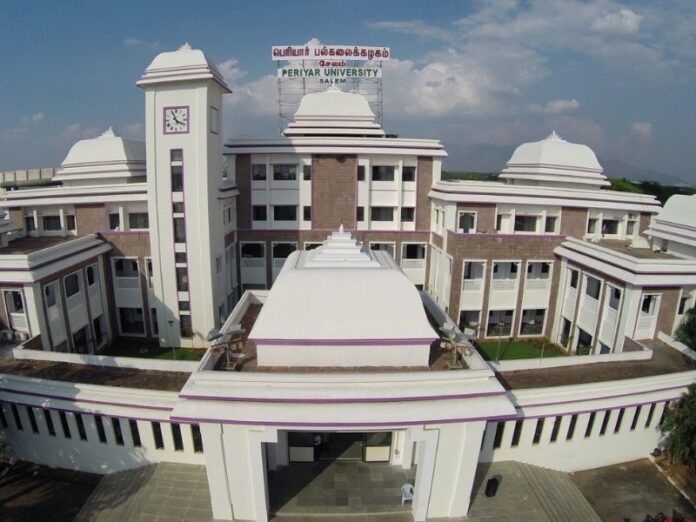Located in Salem, Tamil Nadu, India, Periyar University is a well-known public university. It was founded in 1997 and bears the name Thanthai Periyar E. V. Ramasamy in honour of the social reformer. The institution is renowned for its emphasis on giving rural and economically underdeveloped areas of Tamil Nadu access to higher education. It provides a range of research, undergraduate, and graduate programmes in fields including education, science, commerce, and the arts. Periyar University also places a strong emphasis on innovation and research, which greatly advances the area’s academic and socioeconomic growth.
Establishment: The Tamil Nadu government founded Periyar University in 1997. It bears the name of Thanthai Periyar E. V. Ramasamy, a social reformer who pushed for justice and equality for all.
Academic Programmes: Periyar University provides a broad selection of research, postgraduate, and undergraduate courses in a number of subject areas. These encompass a variety of fields, such as computer science, education, management, science, and the arts. The institution adjusts its curriculum on a regular basis to reflect changes in the academic and industry landscape.
Periyar University places a strong emphasis on research and innovation. It supports cooperative research projects with businesses and other academic institutions and has multiple research centres. The institution promotes research endeavours that tackle societal issues and advance knowledge among its academic and student body.
Distant Education: Periyar University provides distant education programmes in addition to its normal on-campus offerings. Students who are unable to pursue traditional, full-time education because of work, personal obligations, or geographic limitations are catered to by these programmes. Distance education courses come in a range of subject areas and give students the freedom to learn at their own speed.
Infrastructure: The university’s campus is furnished with state-of-the-art amenities, such as computer centres, libraries, theatres, sports complexes, and dorms for students. Both extracurricular and academic activities are supported by the infrastructure.

































